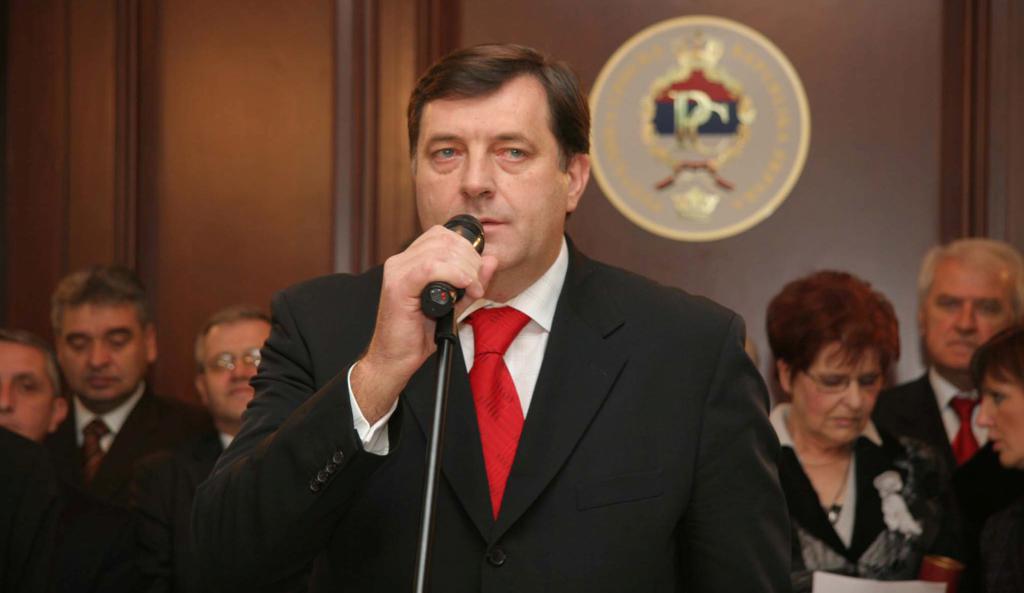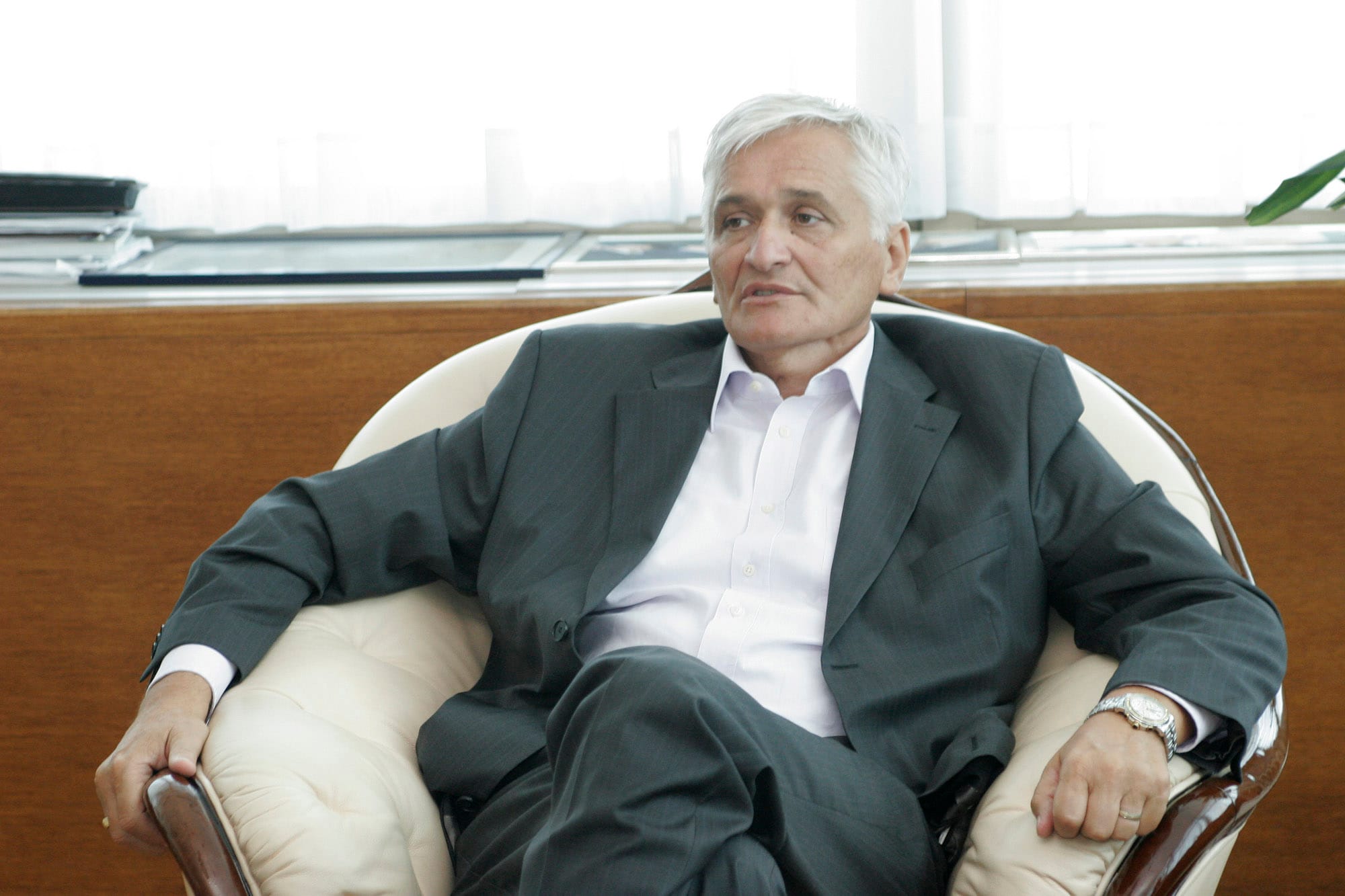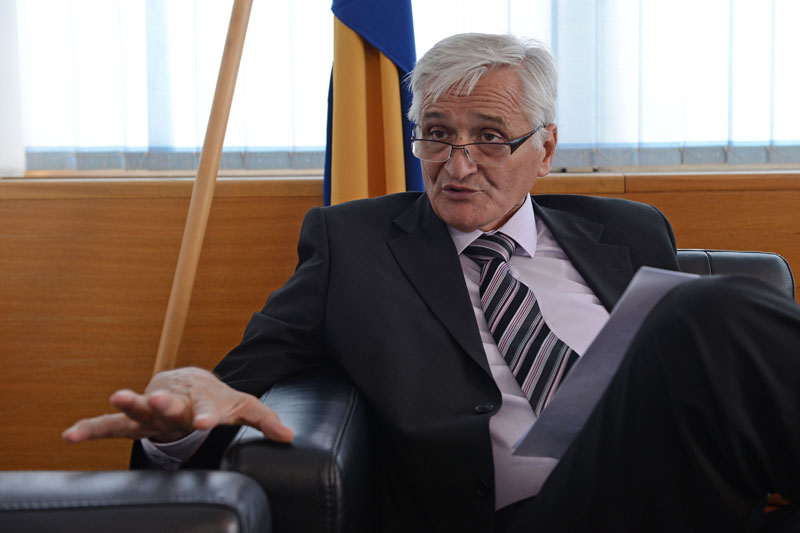The real status of the assets of Bosnia-Herzegovina (BiH) politicians in known only to them. Their assets are supposed to be public knowledge but the laws of the country do not provide the citizens insight into whether the people they voted for amassed wealth during their terms of office or if they lived off their salaries like most of the rest of the population. That should change if sanctions proposed to the BiH Parliament are introduced for the BiH Law on Freedom of Access to Information.
Politicians are required by law to come clean with their constituents about what assets they have when they run for office and are then required to show just what they have acquired during their terms. But although two laws require both the information and access to it for the public, neither law contains sanctions and both are flouted, either by politicians who are not completely forthcoming when they divulge their assets or by other officials who deny that a politician holds assets and block review of records.
The election law specifies that each candidate for an official post at any level must submit a statement on assets to the BiH Central Election Commission (CIK).
Although they are legally bound to report their assets as public information, politicians often do not reveal everything and there are no sanctions except moral judgment if they do not tell the truth.
Even if a politician decides to fill in an asset card properly, lower-level officials have sometimes subverted the Law on Freedom of Access to Information, thwarting its purpose. Saying that they realized this had become common practice, House of Representatives of BiH Parliament on September 2 amended this Law, introducing sanctions – fines that range from 1,000 to 15,000 KM for the institutions and 200 to 5,000 KM for an individual who avoids submitting relevant information. There are numerous examples of violations of that law in the past.
For instance, Banja Luka Basic Court replied to a Center for Investigative Reporting in Sarajevo (CIN) inquiry that the Prime Minister of the Republika Srpska (RS) Milorad Dodik, the presiding member of the Council of Minister Nikola Špirić, member of the BiH Presidency Nebojša Radmanović, former president of the RS Government Dragan Mikerević, former president of the RS Dragan Čavić and president of the Party for Democratic Progress (PDP) Mladen Ivanić have no assets in Banja Luka municipality.
The head of the Land Registry Office in Banja Luka, Dragan Kojić, signed a memo saying the ‘there are no records on the mentioned individuals in the land registry books as ownership rights holders or other forms of actual rights, for example the right to use and dispose of property.’
Špirić and Dodik’s assets cards, though, state otherwise. In the assets card Špirić submitted to CIK in 2006 he did not bother to report much – without specifying the type or the value, he reported that he owned an apartment and a vehicle. In a report submitted later that year to CIK—a report that is not public but that is subject to a check by the State Investigation and Protection Agency (SIPA) he reported that he owned an Audi A6 and a three-bedroom apartment in Banja Luka. The apartment, if Špirić still owns it in his name, would be recorded in Kojić’s office.
Dodik’s asset card shows ownership of a lot more—although Kojić’s document indicates nothing is registered.
The asset card Dodik submitted at the end of June 2006 showed that he owns a lot of property that should have been registered in the Banja Luka Basic Court’s Land Registry Office. However, according to the official statement from Kojić, Dodik is not registered at all as the owner of any assets.
In his asset card, however, Dodik stated that he owned an apartment in Laktaši worth 30.000 KM, a family inheritance (he does not state the nature of it) of 300.000 KM, a family house valued at 200.000 KM, a car, an Audi worth 100.000 KM, stocks in some unidentified companies. Some of those assets would logically be registered with Kojić’s office and there is no published record that CIN reporters are aware of that would indicate he divested himself of all property in Banja Luka in the past three years.
The CIK form inquires into all current incomes, including wages, profit from assets, deposits and other earnings made in the country and abroad in the past calendar year. Candidates are obligated to list cash available, bank accounts, business documentation, stocks, securities, bonds, real estate, personal property, tenant’s rights of tenure and other property and goods whose value exceeds 5.000 KM in the country and abroad.
The form also requests expenditures, debts, liabilities, bills of exchange, loans and guarantees for such liabilities in the country and abroad. A statement properly prepared, according to the law, should include information as well on assets of their family members, the spouses, children and household members whom the candidate is legally obligated to support.
Then, the law, designed to show what politicians have and how much they have acquired while in office, demands the same information after a politician’s term of office is over.
But the law provides no legal sanctions for those who submit incorrect information. That leaves any politician to decide just how transparent to be
Maksida Pirić, CIK spokesperson said there is nothing the elections commission can do in cases of major discrepancies.
‘There is only the public and media. Indeed we do not check the information. We are unable to do it’ she said. ‘We do not have the capacities to do so nor are there enough people on our staff so that we could check up all the statements of assets. This is why the public is here, so we publish these statements so that representatives of the media can perhaps notice if there are perhaps drastic discrepancies and that perhaps someone, I don’t know who, could file a report.’
Politicians fill in the forms by hand, which offers another obstacle—sometimes they are illegible because of the handwriting. Often politicians ignore the requirement that they designate the currency that the assets are valued in (whether in Euros or in KM or in some other denomination), so the value of their assets remains unclear even if a sum is stated.
Sanctions are imposed only in case candidates fail to fill in and sign the forms at the beginning and end of their terms. This ‘omission’ warrants a fine between 200 and 5,000 KM.
Halid Genjac, the president of the parliamentary commission which approves candidates for BiH Council of Ministers, maintained that officials are held responsible for the veracity of the information in the asset cards they file.
‘If one does not list everything they have in the form, that is untrue. If they list only half, that is in itself incorrect.’ said Genjac adding that, for now, the only sanction for incomplete and incorrect information is judgment from the public.
To make it easier for the public to judge, BiH has a Freedom of Access to Information Law, designed to allow all citizens access to information on public figures. As with the law on assets disclosure, no sanctions are yet mandated for anyone who fails to reply or deliver the requested information. That has left agencies without regulation if they choose to ignore the law or to interpret it in a way that they think is ‘in the public’s interest.’ The BiH parliament’s law could change that and make the information accessible.
CIN filed its first request for information on the assets of 32 BiH politicians to courts of both entities and the Brčko District at the end of December 2008. While some complied with the law, others made excuses, counter-demands and raised insurmountable obstacles.
The court administrator of the Banja Luka Basic Court, Miron Bjelovuk, stated that his court was unable to provide the requested information. The purpose of CIN request was to learn what property is owned by politicians, but Bjelovuk said he could only verify any properties for which he had detailed information about. He explained that his office in addition to its regular tasks cannot handle the request.
While investigating BiH politicians’ assets, reporters from the CIN came across some interesting responses, responses that some teeth in the law might change by a lot.
In a prime example, Dijana Ajanović, the president of the Zenica Municipal Court approved a review and copying of the documents pertaining to the case of Gas&Metal Ltd. company in Visoko, owned by Vahid Hećo the Federation of BiH minister of energy, mining and industry. But her colleague did not share her views, illustrating the varying interpretations of the law.
Ramo Ljevaković, the head of the Zenica Court Registry thought it was enough to provide an excerpt from the register stating there are no legal grounds for the whole case to be examined; he tried to prevent CIN from accessing the whole Gas&Metal company file. Two judges in a single institution, then, differed on what information should be made public.
In the vacuum of sanctions, politicians seem to report only bits and pieces of their assets and official institutions and individuals prevent access to records, all making a secret of the true wealth of BiH politicians. And CIN reporters do their work as part of their jobs and still were unable to overcome all the bureaucratic obstacles and arbitrariness. So an ordinary citizen faces even greater obstacles to obtaining what is, under the law, ‘public information’. The proposed amendments to the Law on Freedom to Access of Information could change that and give the public what was intended—information available to the public.











